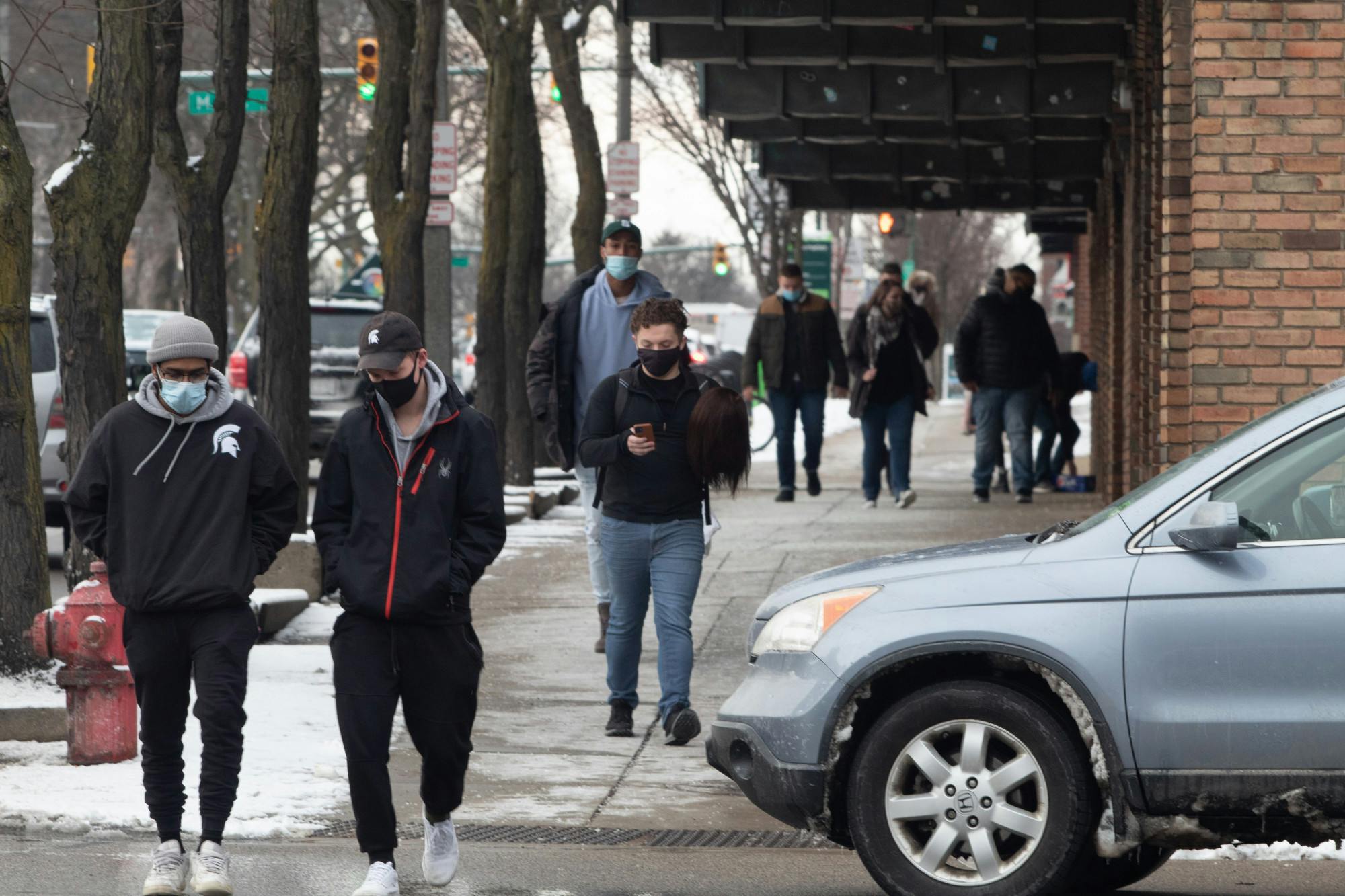A strain of the coronavirus, B.1.1.7, has hit the US in a time when new cases are higher than ever. Even more alarming, B.1.1.7 is even easier to spread, and it’s only a matter of time before it becomes local.
On Jan. 15, the Centers for Disease Control and Prevention (CDC) issued a statement saying that the new variant has the potential to increase the country’s pandemic trajectory over the next few months. They also warned that increased compliance with mitigation strategies, such as distancing and mask-wearing, is necessary for public health. By Jan. 16, the Michigan Department of Health and Human Services (MDHHS) had identified the strain in a woman in Washtenaw County and by Jan. 21, three cases had been identified.
But while the new variant is more transmissible than the more common strain, which has killed over 400,000 people, local businesses and health leaders don’t fear an overwhelming negative impact.
Ingham County Health Officer Linda Vail said that the behaviors that have been instilled in the public since the start of the pandemic — social distancing, large gathering avoidance and mask wearing — are going to be good enough to limit the spread of B.1.1.7.
“It’s more transmissible, and we know that the things that we do to mitigate that transmission work,” Vail said. “And they will work for something that’s more transmissible as well.”
According to Vail, B.1.1.7 will definitely reach Ingham County, but has indicated that it hasn’t happened yet. She said that they are monitoring positive cases for travel history, which will be sequenced in order to identify the variant.
As far as venturing out for groceries or picking up food for restaurants, Vail said that doing so will still be safe since most of the risk of infection is found in being within close proximity to an individual for over 15 minutes.
“We can continue to do that, but we really do, again, need to follow all of these proper precautions to keep from transmitting illness, even in those settings,” Vail said.
One local business owner, Luke Hackney of Retro Duck, an East Lansing printshop, is staying optimistic that their COVID-19 safeguards will be enough to limit the spread of B.1.1.7, while also keeping their business afloat.
"As far as precautions, I think we're taking just about anything we can," Hackney said. "Our actual storefront office hasn't been opened since March. We actually only do shipping and deliveries now."
Hackney said that the printshop was not hit too hard by COVID-19, having been open since after the first round of shutdowns in March.
“The biggest issue with us, if we have any problems at all, is the fact that we were closed for three months," Hackney said. "Cash flow isn't exactly what it normally would be, but in terms of business we're doing, we've gotten creative, and we've got new clients and we're doing all right."
Mask-wearing and social distancing are enforced in his shop, but Hackney said that when he sees people without masks in public, it reminds him of what the present could look like if everyone wore masks.
“It definitely does give me pause to think how much quicker this would be over if everybody just always did," Hackney said. "But, I'm confident. I think we need to push this vaccine further."
An estimated 83,000 people in Ingham County became eligible to receive the vaccine when prioritization group 1B opened, but county health systems have only been able to vaccinate roughly 6,000 people each week.
East Lansing, where Michigan State University resides, has the highest number of cases in Ingham County. On Tuesday, Jan. 19, the MDHHS issued new guidance for universities, asking them to test all on- and off-campus students in the area surrounding the university, in order to monitor and limit the spread of B.1.1.7.
Cheryl Berry, MSU associate director of marketing and communications for Culinary Services, said that dining halls will remain open and their COVID-19 policy will remain unchanged, unless direction from the CDC, local health officials or the MSU physician’s office says otherwise.
Currently, students can sit down in dining halls, one person to a table, and must keep six feet of distance between other people at all times. In addition, the full dining menu is available as a grab and go, providing a low-contact experience for students who wish to carry out their meals.
Low- to no-contact options are available in many local grocery stores and restaurants, as are delivery options. As people are less apt to be in public, a November 2020 report from MarketWatch indicated that delivery services such as DoorDash and Shipt have seen a surge in business since the pandemic.
Rachel Hurst, communications representative of the Michigan division of Kroger, said that they are continuing to enforce social distancing and mask requirements set by the CDC. She also said that Kroger has worked to expand contact-free payments and also offer no-contact delivery options and ship-to-home orders. Hurst declined to comment on the B.1.1.7 variant. All precautions discussed were put in place prior to the strain’s arrival in Michigan.
Support student media!
Please consider donating to The State News and help fund the future of journalism.
Other retailers, such as Whole Foods, Meijer, Target and Walmart have implemented similar strategies.
While being in public for essential items is still necessary with the arrival of B.1.1.7, Vail said that the behavior of each individual will decide the extent to which the new strain spreads throughout the community.
“The degree to which we get adherence to mask-wearing, avoiding social gatherings, distancing, all of those things that we’ve been talking about, will protect us,” Vail said.
Discussion
Share and discuss “New variant, same precautions” on social media.







